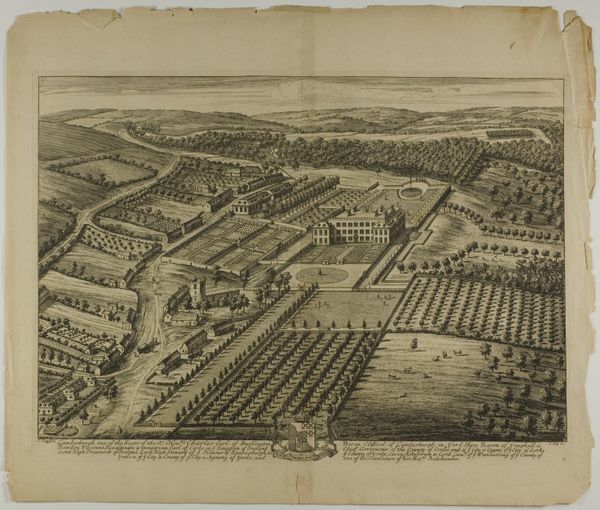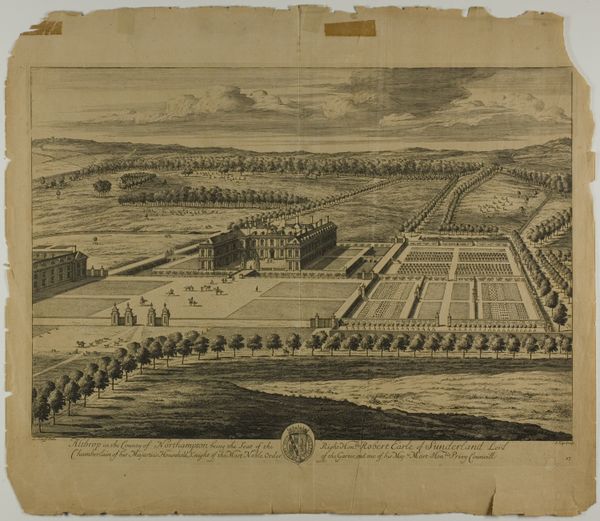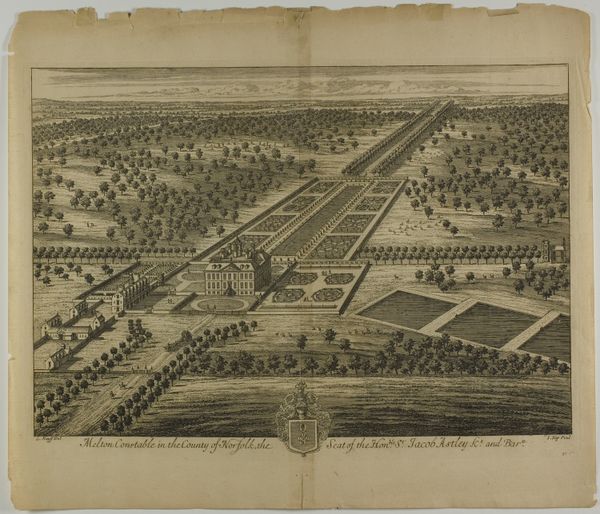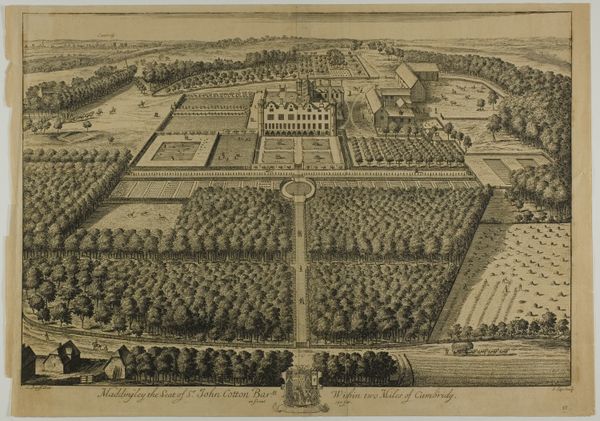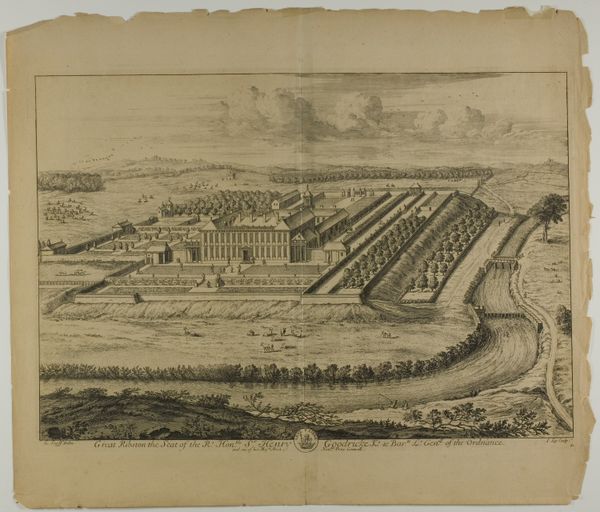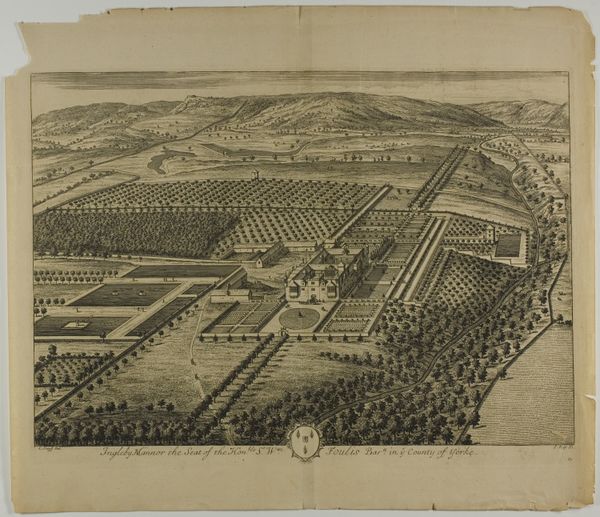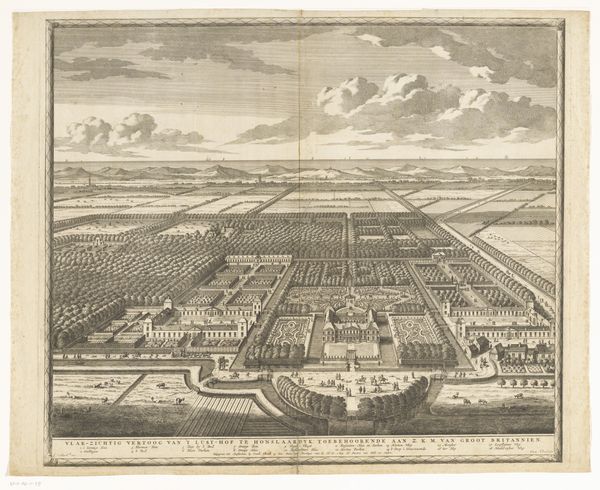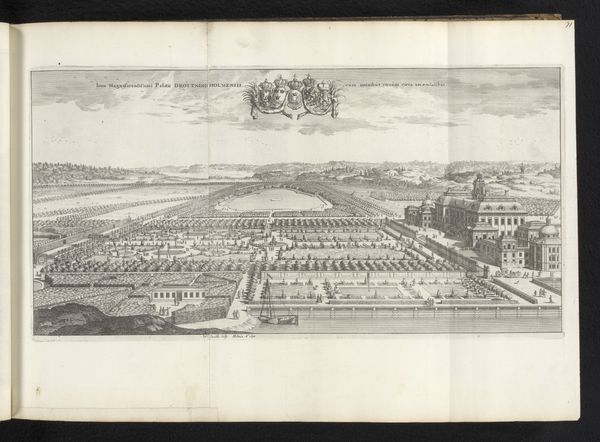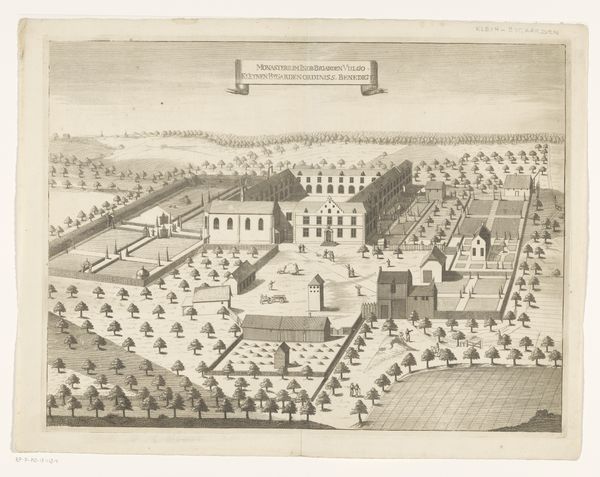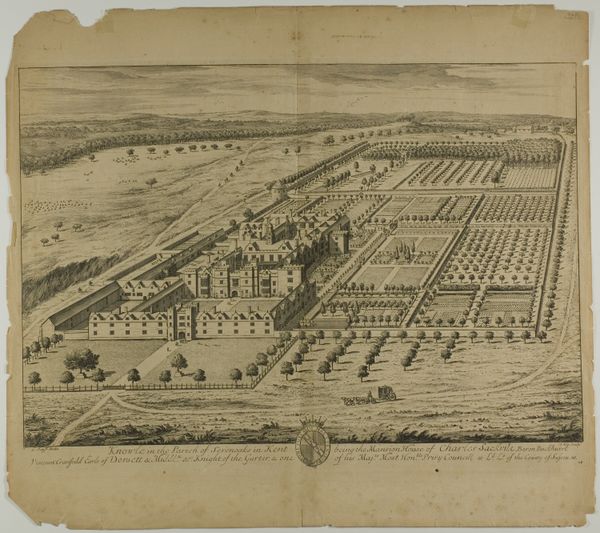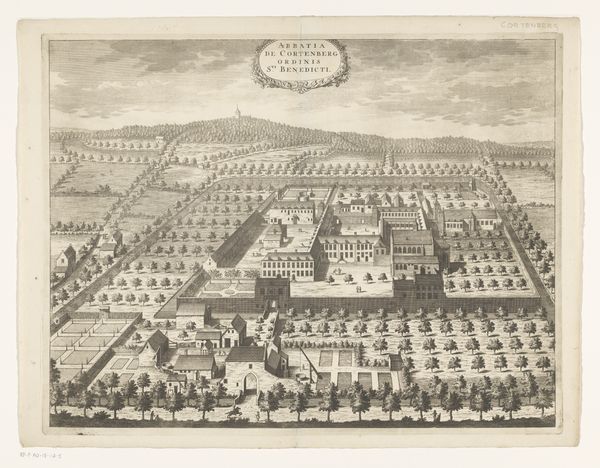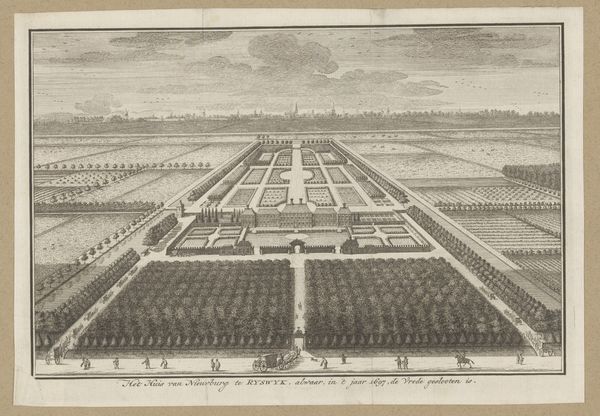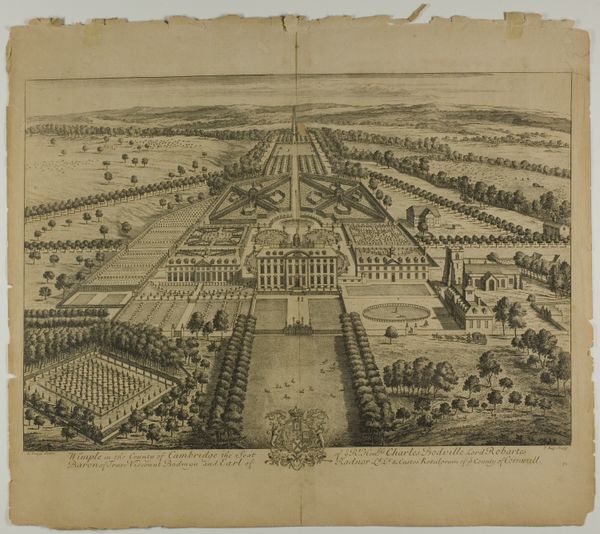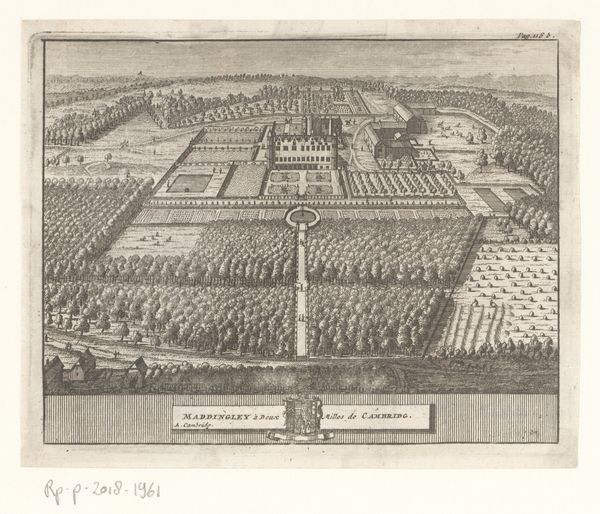
Wollaton Hall in the County of Nottingham, plate 68 from Britannia Illustrata Possibly 1707
0:00
0:00
drawing, print, etching, paper, engraving, architecture
#
drawing
#
baroque
# print
#
etching
#
landscape
#
etching
#
paper
#
history-painting
#
engraving
#
architecture
Dimensions: 326 × 474 mm (image); 352 × 483 mm (plate); 439 × 514 mm (sheet)
Copyright: Public Domain
This print of Wollaton Hall in Nottingham, made by Johannes Kip around 1707, is an etching, meaning that the image was incised into a metal plate, inked, and then pressed onto paper. The result is a meticulously detailed view of an estate, but it’s worth remembering the labor-intensive process behind its making. Kip would have needed not only artistic skill, but also knowledge of metallurgy and printmaking. The sharp lines and tonal variations we see result from careful control of the etching process, using acids to bite into the metal at different depths. This technique allowed for the reproduction of a complex scene, capturing the architecture of the hall and the geometry of the surrounding gardens. Prints like this one were, in effect, a form of early advertising for the aristocracy, broadcasting their wealth and taste. So, next time you see an etching, consider the skilled work, and social ambitions, embedded in its very material form.
Comments
No comments
Be the first to comment and join the conversation on the ultimate creative platform.
